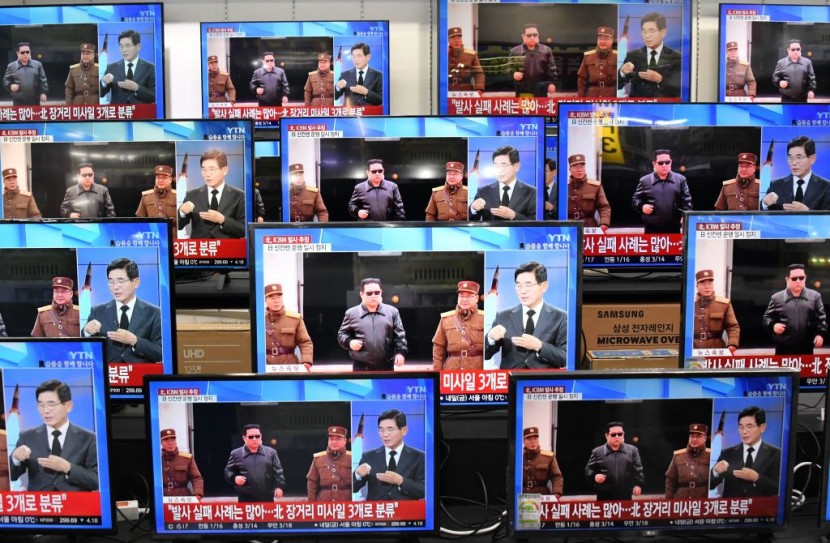
North Korea fired three missiles Thursday, including an intercontinental ballistic missile (ICBM), South Korea and Japan said. The incident happened after Pyongyang blasted a record 23 missiles the day before.
NBC News reports that Japanese authorities were concerend that one of the missiles might pass over the country, prompting them to activate an early warning system to alert people in the northern prefectures of Miyagi, Yamagata, and Niigata to seek shelter indoors or underground. Officials then reported the missile did not travel over Japan and vanished over the ocean.
US Calls North Korea's Missile Launch a 'Flagrant' Offense
As this week's extensive joint military drills between the United States and South Korea continue, North Korea has intensified its missile testing and fervent rhetoric. North Korean leader Kim Jong Un wants to strengthen his nuclear arsenal, and compel the US to remove sanctions.
South Korea's Joint Chiefs of Staff said the long-range ballistic missile was shot at 7:40 a.m. (6:40 p.m. Wednesday ET) from Pyongyang's Sunan area. An hour later, North Korea fired two short-range ballistic missiles from Gaechon, South Pyongan.
In a statement, US National Security Council spokesperson Adrienne Watson said that Washington harshly condemned North Korea's ICBM launch and that US President Joe Biden and his national security team are closely working with allies and partners to analyze the situation.
Watson said that North Korea's missile launches this week constitute "a flagrant violation of multiple UN Security Council resolutions and needlessly raises tensions and risks destabilizing the security situation in the region."
Watson stated the US will do everything it takes to protect itself and its allies. Defense Minister Yasukazu Hamada later clarified that the missile "did not cross the Japanese archipelago, but disappeared over the Sea of Japan," contradicting an earlier statement from Tokyo that the missile had flown over Japan, according to BBC.
Japanese Prime Minister Fumio Kishida subsequently blasted North Korea's "repeated missile launches." In October, North Korea conducted what it said was a test of a new intermediate-range ballistic missile, which experts believe could theoretically hit Guam, a major US military headquarters in the Pacific.
Navy Captain Choi Yong Soo, who is in charge of public relations for South Korea's Defense Ministry in Seoul, dodged the question of whether or not the ICBM launch was successful, saying that the data is still being examined.
North Korea Will Face Grave Consequences If It Pushes 7th Nuke Test
Experts say North Korea is intensifying its weapons tests in an attempt to exploit a rift in the UN Security Council over Russia's assault on Ukraine to develop weapons.
North Korea has accompanied its increasing number of nuclear tests with an increasingly hostile nuclear doctrine that allows for nuclear preemption in a wide range of vaguely defined crisis conditions. A seventh North Korean nuclear test might push the country closer to its ambition of establishing full-fledged weaponry, endangering US allies and the US mainland, experts believe.
Ned Price, a spokesman for the State Department, warned on Tuesday that a seventh nuclear test would be a "dangerous, reckless, destabilizing act" with "additional costs" and repercussions should North Korea proceed with the nuclear weapons test per AP News.
Due to disputes on a relaxation of the debilitating US-led sanctions against North Korea in exchange for denuclearization steps, nuclear disarmament negotiations between Washington and Pyongyang have remained dormant since 2019.
Related Article : Saudi Arabia Raises Alarm on Iran Threat, Attack; Iraq Where US Troops Are Deployed Also a Possible Target
© 2026 HNGN, All rights reserved. Do not reproduce without permission.








